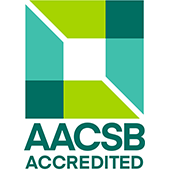
Executive MBA (EMBA) in Operations Management
Organizations in today’s competitive business landscape need to know how to best leverage their resources to maximize the quality and delivery of products or services with the most cost-effective strategies. An Operations Management specialization equips students with the knowledge to identify operational issues, recognize areas for improvement in business processes, establish a culture for implementing new processes improvement efforts and measure initiative effectiveness. Skills in web-based business development along with a foundation in sourcing and supply chain management prepare students for success as operations managers, project management consultants, or in launching and managing their own businesses.
Students who choose an Operations Management specialization select courses from the list below, or other approved Special Topics courses to fulfill the 12 credit (4 course) elective requirement. Elective course offerings vary by semester. Courses may be offered online or on-campus.
*Certain specializations may vary in cost and schedule from the enrolled program (e.g. some specializations may be only available online or require class attendance outside of the regularly scheduled program times, such as on the weekends).
Business Process Improvement (MAN 6525) - REQUIRED FOR CONCENTRATION
Prepares students to provide leadership in shaping a culture for business process improvement initiatives within an organization and determine the effectiveness of improvement initiatives such as Six Sigma Quality, Process Capability, Process Control, Business Process Re-engineering and Service Quality.
Project Management (MAN 6581) - REQUIRED FOR CONCENTRATION
Provides a strong foundation in the planning and control of projects. Addresses specific operational issues related to projects in areas such as process re-engineering, new product development, enterprise resource planning, and software development are addressed. Other topics included are project risk management, critical chain project management, contingency planning, and the balanced scoreboard.
Supply Chain Management (MAN 6596) - REQUIRED FOR CONCENTRATION
Provides an understanding of key issues, mechanics, and developments in sourcing and
managing the supply chain, which is the connected network of all of the value activities
that plan, control, and supply interim and finished product services to customers.
To fulfill the Operations Management concentration, students will have to take the
three courses listed above. In addition, students must select and complete one of
the courses below. Offerings will vary based on availability.
Web-Based Business Development (ISM 6508)
Develops skills for launching and managing web-based businesses. Students complete
a business plan for starting an online business of their choice. Additional topics
include evaluating current web-based business opportunities, online entrepreneurship,
web-based venture financing and e-business operations.
Blockchain and Digital Business Transformation (ISM 6455)
Digital transformations are encompassing all organizations, business sectors, and society. Course provides a critical understanding of transformative technological innovations, such as Blockchain, and their wide-ranging impact. Learn trends in technology innovation, business strategies, cryptocurrencies, and Bitcoin. Understand business applications of Blockchain for Finance, Supply Chain Management and various business and government sectors. Learn to identify opportunities for digital business transformation.
Developing and Marketing Innovations (MAR 6837)
Covers the key challenges encountered in developing an innovation and creating its
marketing plan. Prepares students to undertake leadership roles as managers or entrepreneurs
in the area of product/service innovation.
Data Analysis for Managers (QMB 6603)
The course develops students' knowledge of exploratory data analysis, probability
theory and distributions, sampling, inferential statistics, and linear regression.
Students develop and demonstrate knowledge of statistical functions of office suite
spreadsheet software (e.g., Microsoft Excel) and specialized statistical software
(e.g., Minitab) functions. Learning opportunities are created in which students employ
critical thinking skills to analyze and solve business problems using statistical
techniques, and to build multiple regression models using software.
Supply Chain Analytics (QMB 6616)
Develops skills in modeling and optimization techniques for the analysis of strategic,
tactical and operational supply chain problems. Problems range from inventory management,
distribution planning and facility location to risk management and global sourcing.
















